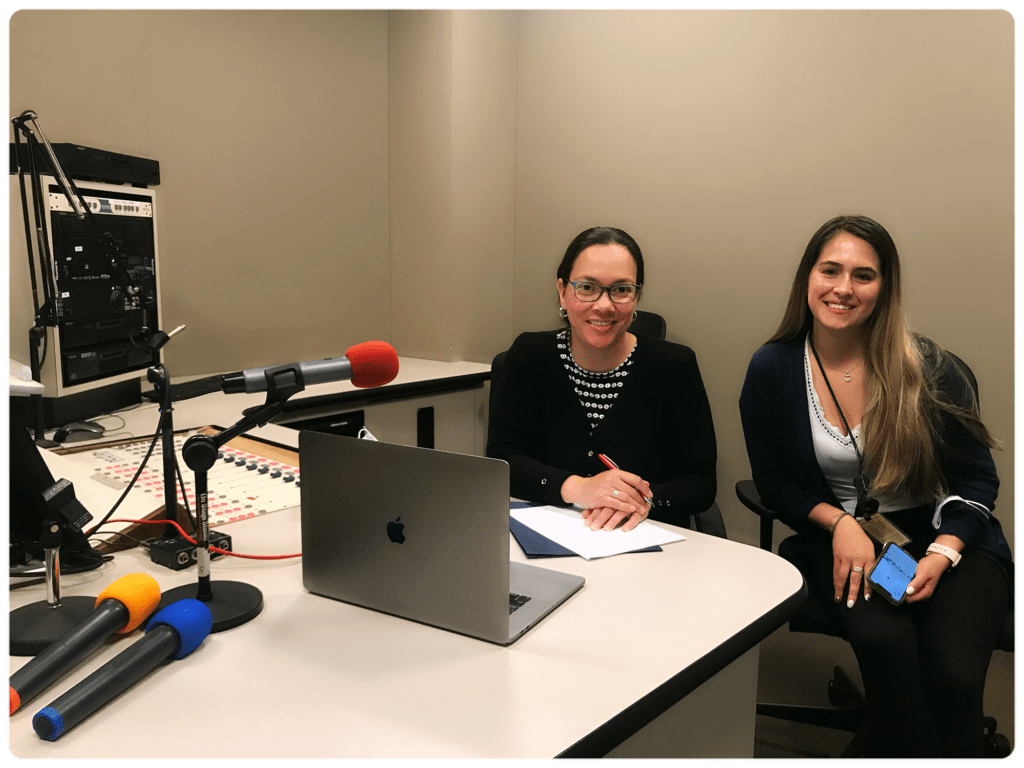Careers Up Close
Careers Up Close: Yakeel Quiroz on Cross-Cultural Alzheimer’s Research

Yakeel Quiroz is an associate professor of psychiatry and neurology at Harvard Medical School. She also directs Massachusetts General Hospital’s Familial Dementia Neuroimaging Lab and Multicultural Alzheimer’s Prevention Program, where she is leading a longitudinal biomarker study of an extended family in Colombia with a gene that causes a unique form of early-onset Alzheimer’s disease that may illuminate the progression and prevention of dementia.
- Current role: Associate professor of psychiatry and neurology at Harvard Medical School, 2020–present; director of the Familial Dementia Neuroimaging Lab and Multicultural Alzheimer’s Prevention Program at Massachusetts General Hospital, 2015–present
- Previously: Clinical fellow, instructor in neurology, assistant professor at Harvard Medical School, 2012–2020
- Terminal degree: PhD in clinical psychology, Boston University, 2013
- Recognized as an APS Rising Star in 2015
Landing the job
I received a very competitive National Institutes of Health Director’s Pioneer Early Independence Award right after I completed my PhD, which allowed me to launch my own lab at Massachusetts General Hospital in Boston and become junior faculty at Harvard Medical School.
After the Pioneer Award, I stayed at Massachusetts General Hospital and Harvard Medical School as an assistant professor, and then just recently was promoted to associate professor.
Researching resistance
I have been studying a large extended family in Colombia, many of whose members have a rare mutation in a specific gene, presenilin 1, that causes early-onset Alzheimer’s disease. More than 1,000 people in this family have this mutation, and [those who have it] almost always develop dementia in their 40s.
When I became an APS Rising Star, I was studying early brain changes in this family, mostly using fMRI and structural MRI. Since then, I have added more neuroimaging modalities and other biomarker measures to my research, which have allowed me to further characterize the age-related trajectory of physiological changes in the preclinical stages of Alzheimer’s disease.
Most recently, my group discovered one individual with this genetic mutation who only started to show symptoms of dementia in her 70s. She was found to have an even rarer mutation (occurring in 1 in about 200,000 people worldwide) in another gene, APOE3 Christchurch, that may have protected her against dementia. This extraordinary case offers a truly unique opportunity to understand genetic resistance to Alzheimer’s and is opening up completely new avenues for Alzheimer’s research and treatment. My research now includes the study of the APOE3 Christchurch mutation and other rare mutations that may explain resistance to dementia. By better understanding how this very small group of people in Colombia may have been protected from dementia for decades, we hope to develop better ways to prevent and treat Alzheimer’s around the world.
Mentoring for independence
I really enjoy mentoring junior colleagues. I serve as co-mentor for several PhD students from Boston University, and I also have research assistants, postdoctoral fellows, and junior faculty working with me in my lab. In addition to that, I am involved with the National Mentoring Research Network and several mentoring programs at my institution. I’m particularly interested in mentoring those who are from diverse and traditionally underrepresented backgrounds. Being a Latina neuroscientist myself, I believe I have a lot to offer to my mentees based on my own experiences, and I always make every effort to support them so that they can be independent and have successful careers.
Finding support
Build a supportive community around you; choose a lab, research group, or institution with colleagues who respect you, value you for who you are, understand your needs and challenges, and can provide the support you need without judging you. Find great mentors and sponsors who can help you advance in your career.
Integrating opportunities
I love being able to integrate my clinical and research work. It’s quite a unique opportunity to be able to see patients with Alzheimer’s disease one day a week and then spend the rest of the week thinking about ways to do research to find ways to prevent and stop that disease. My patients are my biggest motivation to do research and find a cure for this disease.
Looking to the future
My research plans include developing new methods for the early diagnosis of Alzheimer’s disease, validating novel modalities of treatments, and identifying new modifiers of Alzheimer’s risk.
Do you know an early-career researcher doing innovative work in industry or academia who might be a good fit for Careers Up Close? Contact the Observer at [email protected].
Feedback on this article? Email [email protected] or scroll down to comment.




APS regularly opens certain online articles for discussion on our website. Effective February 2021, you must be a logged-in APS member to post comments. By posting a comment, you agree to our Community Guidelines and the display of your profile information, including your name and affiliation. Any opinions, findings, conclusions, or recommendations present in article comments are those of the writers and do not necessarily reflect the views of APS or the article’s author. For more information, please see our Community Guidelines.
Please login with your APS account to comment.